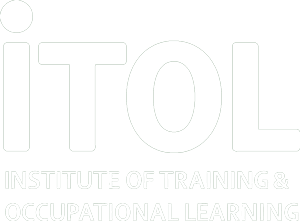Trainer, Facilitator, or Instructor? What’s the Difference?
When you work in the world of education, especially corporate education, it can be difficult for some new educators, trainers, facilitators, and instructors to know what to call themselves. Some people think that instructors are more qualified and educated than trainers or vice versa. Some people think that the type of materials you teach will determine your title in the classroom. If you’ve struggled with what to call yourself, how to brand yourself, or even what to put on your business cards, we’re here to help. What’s in a name? Let’s find out.
Are You a Trainer?
Trainers are thought to the be the backbone of corporate education and training. When a company needs to hire someone to conduct training, they often think of the word “trainer.” The idea behind a trainer is someone who has total control over the learning process. There are guidelines for how materials should be delivered, specific outcomes that need to be met, and those things require someone to move those pieces forward and throughout the training experience. Trainers will often teach courses that require hands-on learning, repetitive tasks, or particular results, such as being able to use a piece of machinery.
Are You a Facilitator?
Facilitators do a lot of the same things that trainers do, and other corporate educators as well. One major difference between trainers and facilitators is that facilitators provide information to participants and allow them to interact with it in a way that suits their needs. They have outcomes that need to be met, but how those outcomes are met are not as stringent as trainers might require. One is not better than the other; they are just different. Facilitators often teach courses that require reflection and application of information to a job, such as communications, leadership, problem-solving, and more.
Are You an Instructor?
“Instructor” is probably the most formal name associated with corporate education. In general, instructors are thought to be highly trained and well-educated people who have more in-depth knowledge to pass on to the participants. In a nutshell, instructors “instruct.” This type of education often involves single instruction. Think, “this is how you do this.” There is not a lot of room for changing up the curriculum, and most corporate instructors have strict guidelines they need to follow.
When it comes to using our training materials, you will likely use a combination of trainer and facilitator methodologies. Meaning, you’ll change up your courses to suit the needs of those you are training. If you are stuck on what to call yourself, consider using Trainer as a blanket title. Everyone knows what trainers do. There is still some ambiguity surrounding what facilitators do, and we can tell you from experience that when companies want to hire training companies, they want to hire trainers to get the job done. Be clear about your instructional approaches, and use that to your advantage, if you prefer to brand yourself as a facilitator. If you are offering super flexible learning environments, you can create a niche for yourself in the training market that will help you find success. Remember, corporate training is about the learner. Each of these types of educator focuses on getting information to the participants in a way that makes sense for them. Focus on being learner-centered, and no one will worry about what you call yourself.

